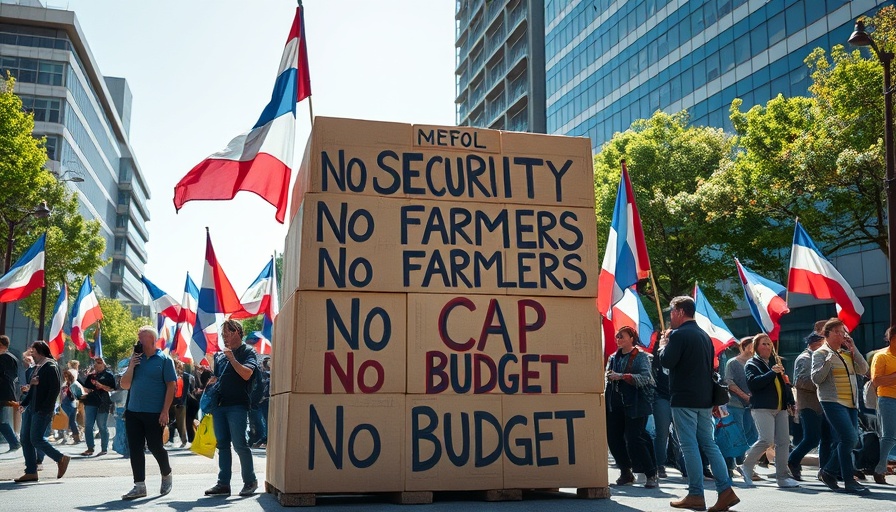
Understanding CAP Budget Cuts: What’s at Stake?
As the European Union contemplates potential cuts to the Common Agricultural Policy (CAP), agricultural groups like Copa-Cogeca are sounding the alarm. CAP has been a cornerstone of European agriculture for decades, providing crucial financial support to farmers across the continent. Currently, discussions are underway that may threaten this vital lifeline, driving Copa-Cogeca to announce protests against these proposed reductions. For farmers who rely heavily on these subsidies, the implications could be far-reaching and dire.
The Reasons Behind Protests
Farmers across Europe are mobilizing against possible CAP budget cuts due to fears that reduced funding will hamper their abilities to maintain sustainable practices and competitive operations. Currently, CAP accounts for around 38% of the total EU budget, and its support is essential not only for promoting efficient farming but also for ensuring food security across member nations. Copa-Cogeca emphasizes that a reduction in resources could dismantle years of progress in agricultural production and environmental stewardship.
Potential Consequences of Reduced Funding
Reduced funding could lead to a ripple effect within the agricultural sector. Some key potential consequences include:
- Increased Food Prices: With lower subsidies, farmers may face pressure to increase prices to maintain their operations, ultimately affecting consumers.
- Job Losses: As profitability drops, many farmers may be forced to lay off workers, exacerbating unemployment in rural areas.
- Innovation Stagnation: Funding cuts may hinder farmers' ability to invest in new technologies, undermining their sustainability and competitive edge.
Historical Context: Learning from the Past
Historically, CAP has evolved in response to changing agricultural challenges and European policies. From its inception, it has aimed to stabilize farmers' incomes, ensure a fair standard of living for the agricultural community, and provide a steady supply of affordable food to consumers. Cuts to CAP funding have previously led to unrest within the farmer community, reminding policymakers of the significant impacts to their livelihood that arise from shifting budget priorities.
A Call for Action: The Time to Mobilize
In light of the current discussions, Copa-Cogeca urges farmers to participate actively in the planned protests. It is essential for farmers to voice their concerns and push back against policies that may jeopardize their future. Organizing public demonstrations, engaging with media channels, and garnering support from local communities can amplify their message and encourage decision-makers to reconsider harmful budget cuts.
The Bigger Picture: CAP and EU Policies
This situation also reflects broader challenges within the EU's policy-making framework. As the bloc shifts towards greener policies and sustainability initiatives, the agricultural sector must balance environmental goals with economic viability. Farmers stand at this intersection, needing support from their governments to thrive and adapt.
Looking Ahead: Future of European Agriculture
The future of agriculture in Europe hinges significantly on how these budget discussions unfold. With the rise of global climate challenges alongside economic pressures, a robust and adequately funded CAP will be pivotal in ensuring that farmers can not only survive but thrive in a rapidly changing environment. Understanding this landscape requires both farmers and consumers to stay informed and engaged.
 Rij toevoegen
Rij toevoegen






Write A Comment